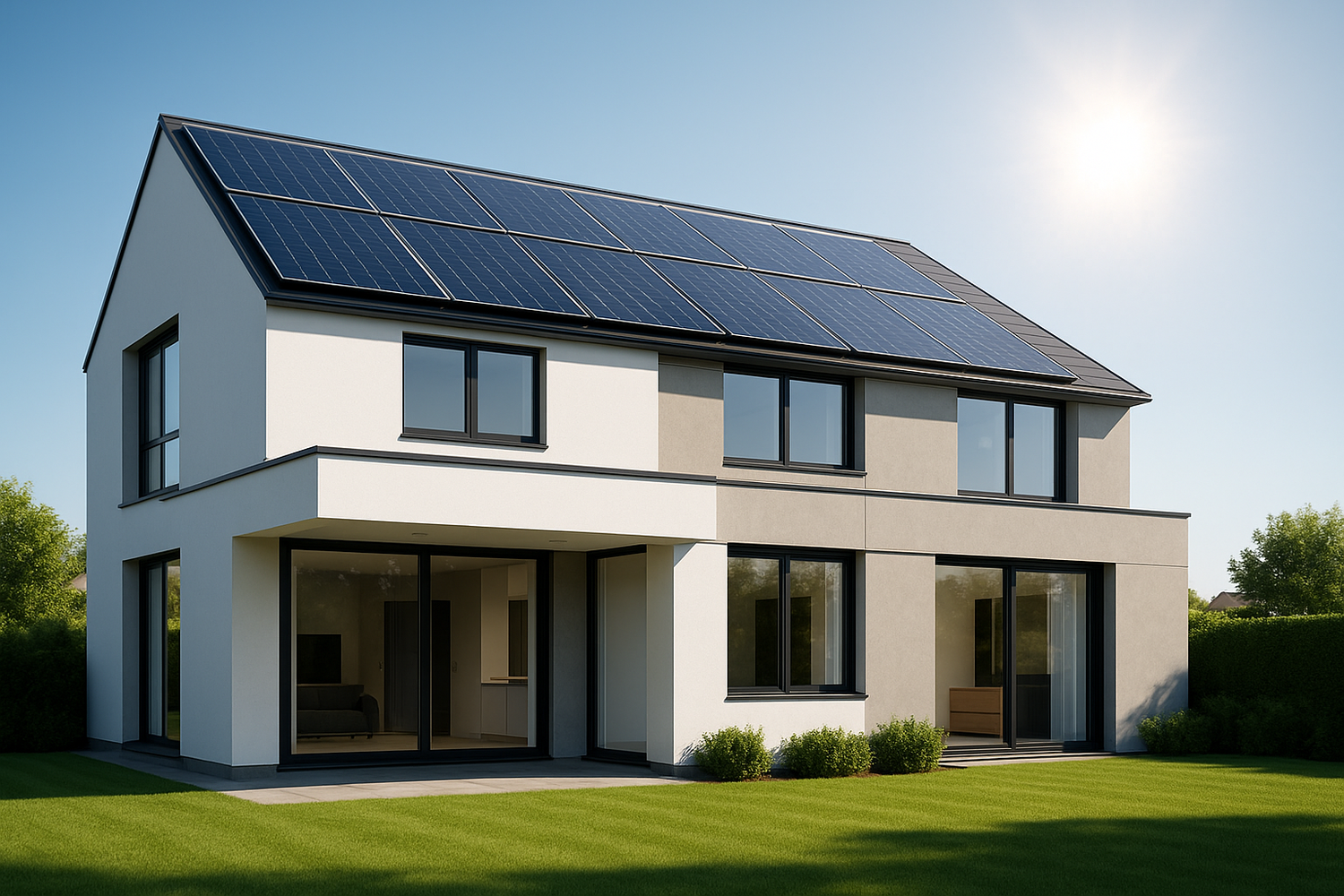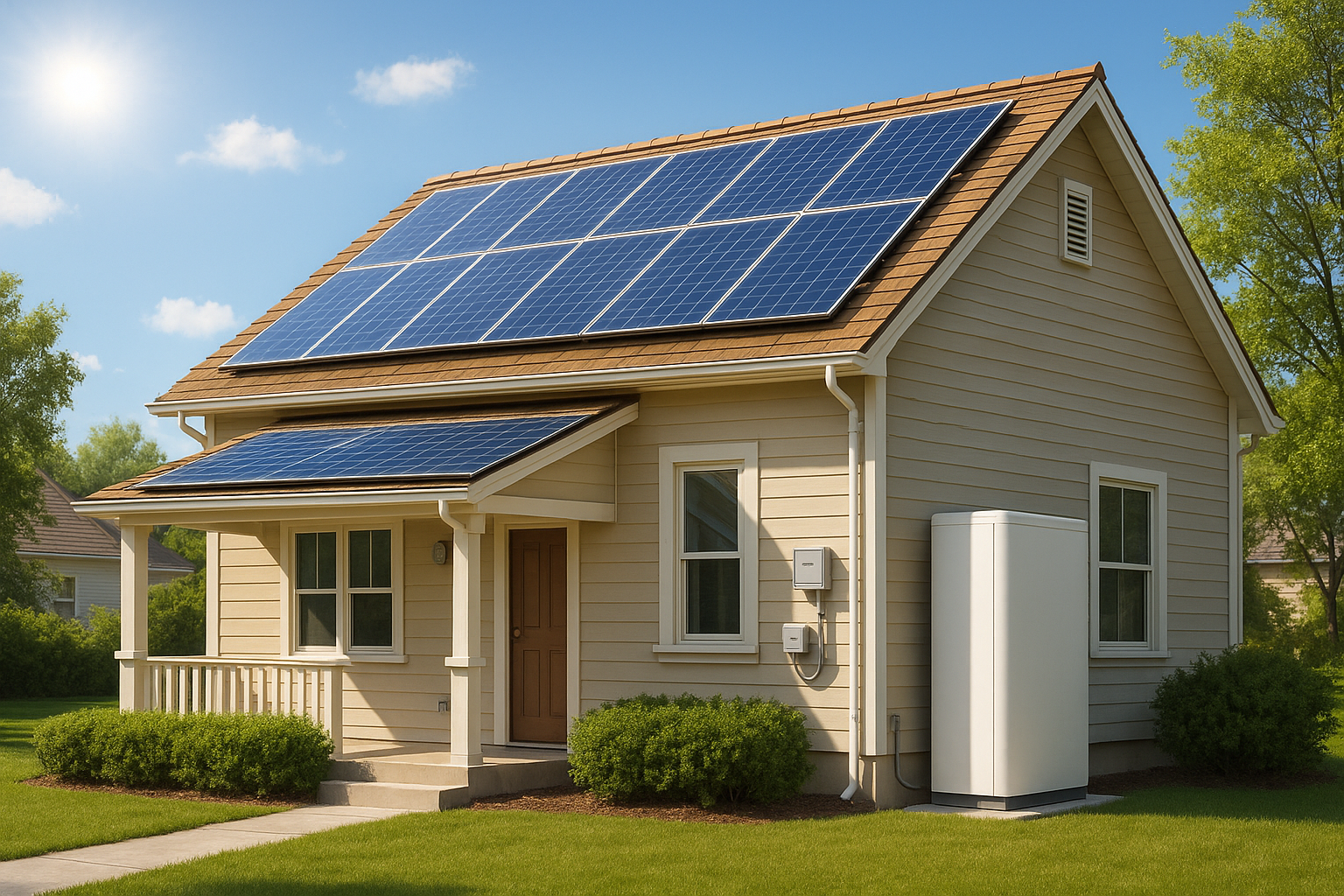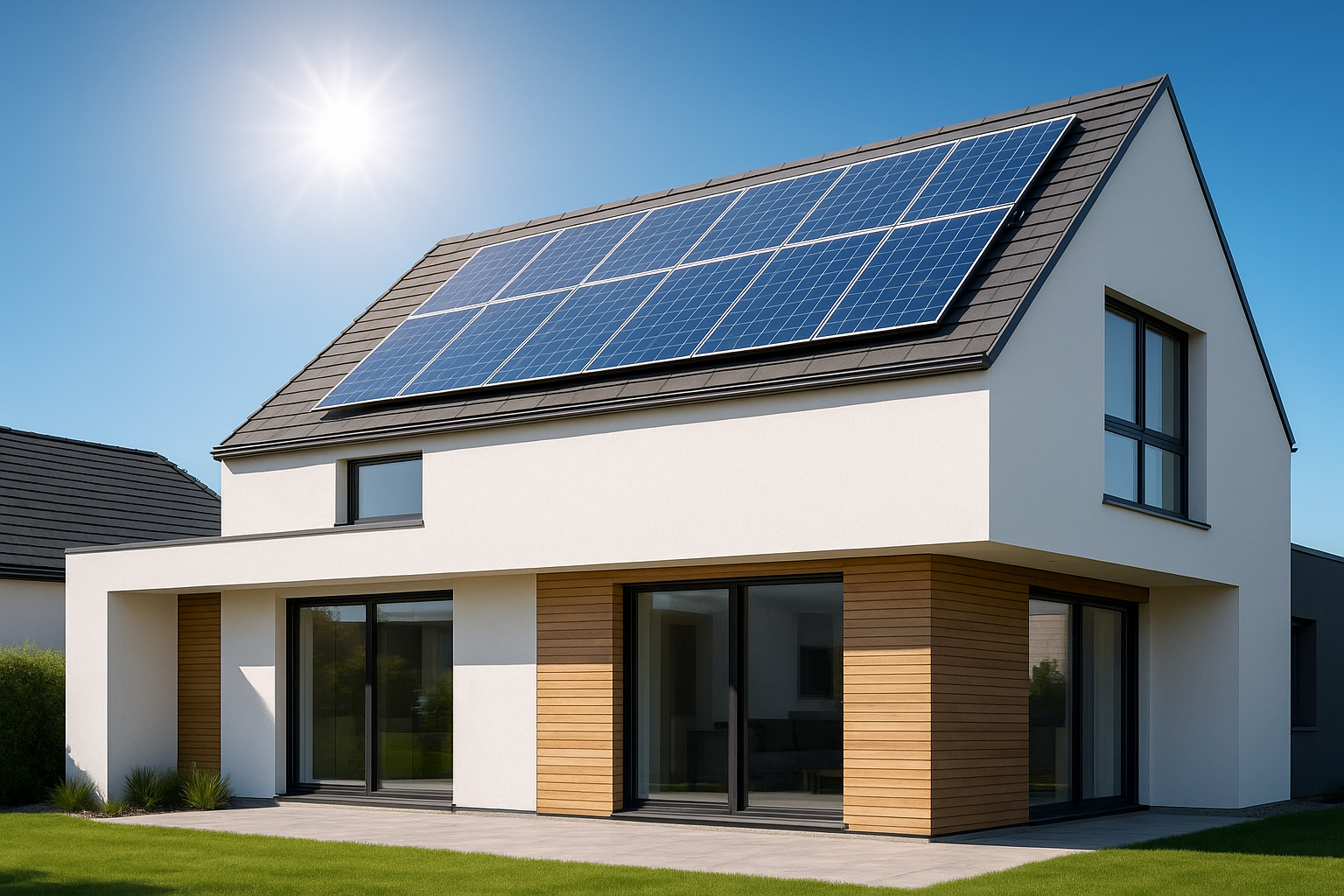Introduction
You are considering solar panels for your home, and naturally, you wonder about the impact on your property's value. This is a common and important question for homeowners. While solar energy offers clear benefits like reduced electricity bills and environmental advantages, the real estate market can seem complex. Real estate agents play a crucial role in home sales, yet their understanding of solar energy systems and their true value can vary. This article provides a clear, practical look at how solar installations affect your home's market appeal and price, revealing insights that ensure you make informed decisions.
The Real Impact of Solar on Home Value
Solar panels are more than just a utility upgrade; they are an investment that consistently adds value to homes. As more homeowners embrace renewable energy, the appeal of solar-equipped properties continues to grow.
Solar as a Value Enhancer
Homes with solar panels often sell faster and for a higher price than those without. Buyers recognize the long-term savings and environmental benefits that come with an installed solar system. Research from Zillow found that homes with solar panels sell for an average of 4.1% more than comparable homes without them. More recent studies suggest this increase could be even higher. For instance, a 2025 SolarReviews study indicated that homes with solar panels sold for about 6.9% more on average. This translates to a significant financial gain, potentially adding nearly $29,000 in value for a median-valued home. The National Renewable Energy Laboratory (NREL) also reported that solar homes sell around 20% faster.
Data-Driven Insights on Value Increase
The added value from solar panels directly relates to the long-term energy savings they provide. A study published in The Appraisal Journal, detailed by NREL, concluded that home value increases by $20 for every $1 reduction in yearly utility bills. So, a solar system reducing energy costs by $500 per year could increase home value by $10,000. A decade-long study by the U.S. Department of Energy’s Lawrence Berkeley National Laboratory (Berkeley Lab) found that buyers in six states were willing to pay $15,000 more for homes with solar panels.
For accurate valuation, it is important to have transparent information about a home's solar energy system, including its age and ownership details. Without this, buyers may struggle to make informed decisions, potentially causing sellers to lose out on solar's premium-boosting value. To address this, new data standards from Berkeley Lab, supported by the SunShot Initiative, allow realtors to enter solar system details into real estate listings. This provides millions of Americans the opportunity to easily buy and sell solar properties.
- **Location:** Solar panels add more value in areas with ample sunlight, strong solar infrastructure, and generous solar incentives.
- **System Size and Performance:** The capacity of your solar system and its energy production directly affect the savings it provides, thereby influencing added value.
- **System Age and Condition:** Newer, well-maintained systems with remaining warranties generally contribute more value.
- **Local Electricity Rates:** Homes with solar in regions with higher grid electricity costs see a bigger premium, as the savings are more substantial.

The Critical Distinction: Owned vs. Leased Solar Systems
How you finance your solar panels significantly impacts their contribution to your home’s value. This is a crucial detail often overlooked in general real estate discussions.
Ownership: Your Path to Maximized Value
When you own your solar panels outright, whether purchased with cash or through a solar loan, you gain full control and all the financial benefits. This directly increases your home's value. You receive all the energy savings, and you qualify for incentives like the federal solar investment tax credit, which allows you to deduct a percentage of installation costs from your federal taxes. These incentives and the long-term savings make owned solar systems a tangible asset for potential buyers, making your home more attractive and commanding a higher resale price.
Leasing: Potential Pitfalls for Resale
Leasing solar panels, or entering a power purchase agreement (PPA), means a third-party company owns the system on your roof. While this option offers lower upfront costs and immediate energy bill reductions, it can complicate selling your home. Buyers must typically assume the lease, which can be a deterrent as they are taking on a long-term contract in addition to their mortgage. Leased systems generally do not add significant value to your home because you do not own the asset, and you do not receive the tax credits or other financial incentives. Some buyers may hesitate to assume a 20-year contract, and the leasing company may even deny new homeowners based on their credit score.
Here is a comparison of how owned and leased solar systems impact property value:
| Feature | Owned Solar System | Leased Solar System / PPA |
|---|---|---|
| **Ownership** | You own the system. | Third-party company owns the system. |
| **Property Value Impact** | Generally increases home value significantly (e.g., 4.1% - 6.9% average increase). | Often adds little to no value; can complicate sales. |
| **Financial Incentives** | You receive federal tax credits and state incentives. | The leasing company receives incentives. |
| **Monthly Payments** | None after payoff (or fixed loan payments). | Ongoing monthly lease payments, often with escalators. |
| **Resale Process** | Streamlined; adds a clear asset to the home. | Can be difficult; buyer must assume lease, which may require credit approval. |
| **Long-Term Savings** | Substantially larger over the system's lifespan. | Savings are less, as you pay for the energy used. |
Navigating Real Estate Transactions with Solar
The process of buying or selling a home with solar panels can differ from traditional transactions. Understanding these nuances is important for a smooth experience.
The Agent's Role: Knowledge Gaps and Opportunities
Many real estate agents lack comprehensive knowledge of solar energy systems. This can lead to mispricing, buyer confusion, and missed opportunities to showcase the true value of a solar home. An agent with solar expertise can effectively communicate the cost savings and long-term benefits to potential buyers. They highlight locked-in energy costs that protect against rising utility rates, compare energy savings to other homes, and target buyers seeking energy-efficient properties.
A knowledgeable agent can also guide appraisers and lenders, who sometimes do not fully account for solar systems in their valuations despite guidelines from entities like Fannie Mae. They ensure the solar system is properly accounted for in pricing, marketing, and negotiations, helping sellers attract the right buyers and achieve the best possible deal.
Ensuring Transparency and Proper Valuation
To maximize your home's solar premium, provide clear and comprehensive documentation about your solar system. This includes details on ownership, installation date, system size, energy production, and any remaining warranties. The Department of Energy emphasizes the importance of uniform solar data fields in real estate databases, known as Multiple Listing Services (MLSs), to prevent issues during transactions. This transparency helps buyers make informed decisions and ensures the solar system's value is recognized.
Beyond Resale Value: The Broader Benefits of Solar Energy
While property value is a key consideration, solar energy offers advantages that extend beyond the balance sheet. These benefits contribute to a home's overall desirability and long-term viability.
Energy Independence and Resilience
Installing solar panels significantly reduces your reliance on grid electricity, providing greater control over your energy costs. With rising utility rates and increased concerns about grid stability, energy independence is a growing priority for homeowners. Integrating a reliable home energy storage system, like those featuring high-performance LiFePO4 batteries, with your solar panels creates a resilient power solution. Our integrated ESS products, which combine lithium batteries, hybrid inverters, and solar panels, offer seamless power supply, even during grid outages. For properties seeking complete autonomy, our off-grid solar solutions provide reliable power for homes, farms, or cabins, helping you achieve true energy independence.
A Sustainable Investment for the Future
Choosing solar energy reduces your carbon footprint, contributing to a cleaner environment. This aligns with a growing consumer preference for eco-friendly homes. Beyond environmental stewardship, solar represents a forward-thinking investment. The cost of solar installation has become increasingly competitive, making it an accessible option for many. With years of experience in the solar and energy storage industry, we focus on developing reliable and scalable energy solutions. Our advanced LiFePO4 batteries offer superior safety and reliability, forming the core of our robust energy storage systems and solar inverters that efficiently convert DC to AC power. By investing in such systems, you secure not only your home's energy future but also contribute to a sustainable energy landscape.
Final Thoughts
Solar energy systems represent a smart investment for homeowners, offering substantial financial savings, increased property value, and greater energy independence. While the real estate market sometimes presents complexities regarding solar valuation, understanding the distinction between owned and leased systems, and ensuring transparent documentation, empowers you to navigate the process effectively. As the demand for sustainable and resilient homes grows, a well-implemented solar solution makes your property highly desirable, securing its value for years to come.





Leave a comment
All comments are moderated before being published.
This site is protected by hCaptcha and the hCaptcha Privacy Policy and Terms of Service apply.